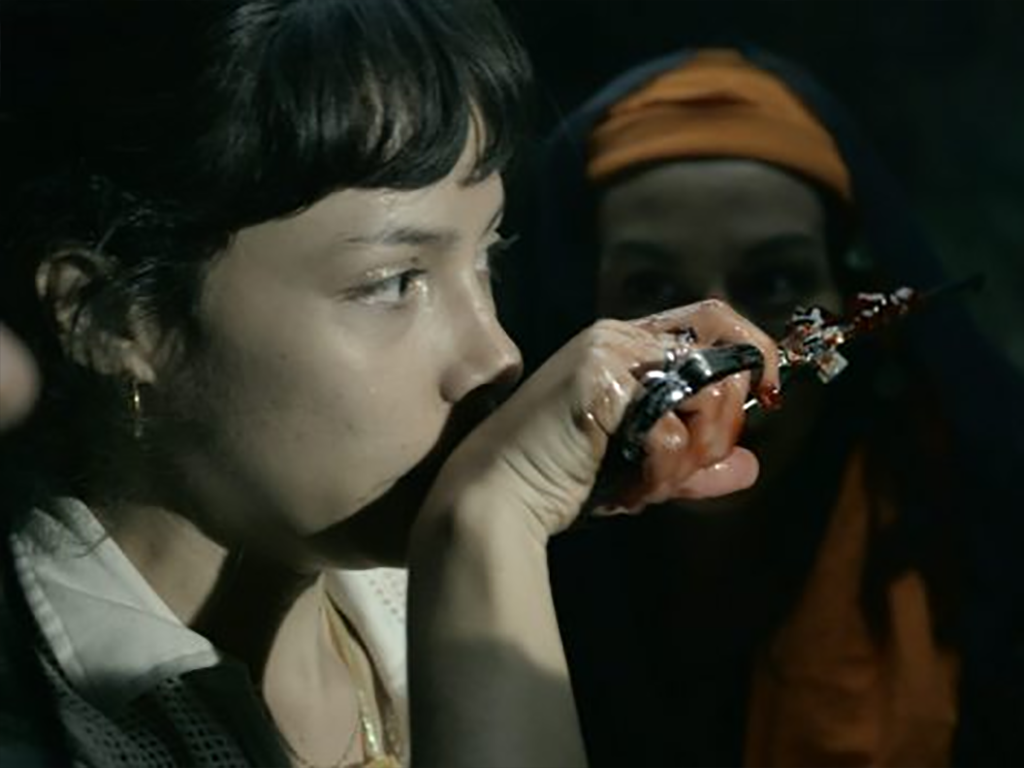I was intrigued by "Diabla" (originally called "Ex Voto") as soon as I read the tagline on the Kickstarter page:
"A female revenge horror about a teenage Mexican girl who finds retribution through her untapped female power and local witch culture."
I am always intrigued by witchcraft as a tool for empowerment and I can't wait to see how that concept functions within the rape/revenge genre. To learn more about the film, I talked to the director, Ashley George, and producer, Maya Korn. At the time, they were both in Mexico City, scouting tech and locations before shooting. We initially tried to do a three-way call, but the sound was super choppy so I ended up speaking to them both individually and compiling this interview from our separate, but overlapping, conversations.
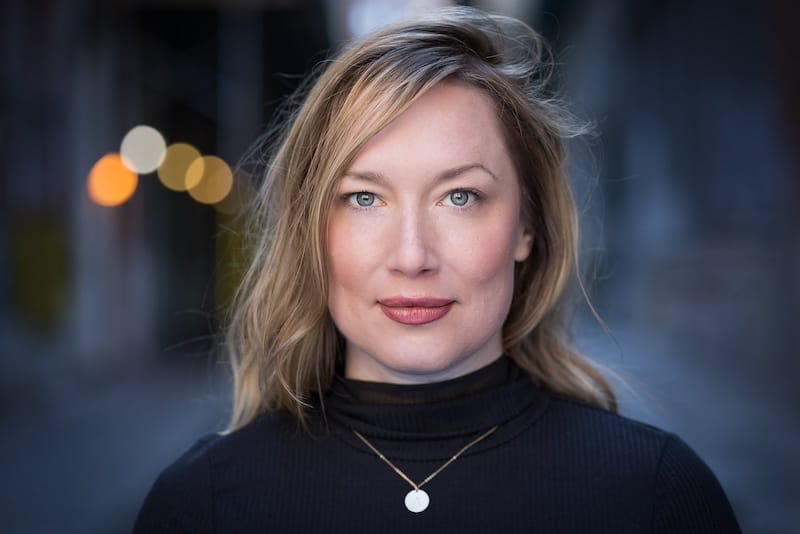
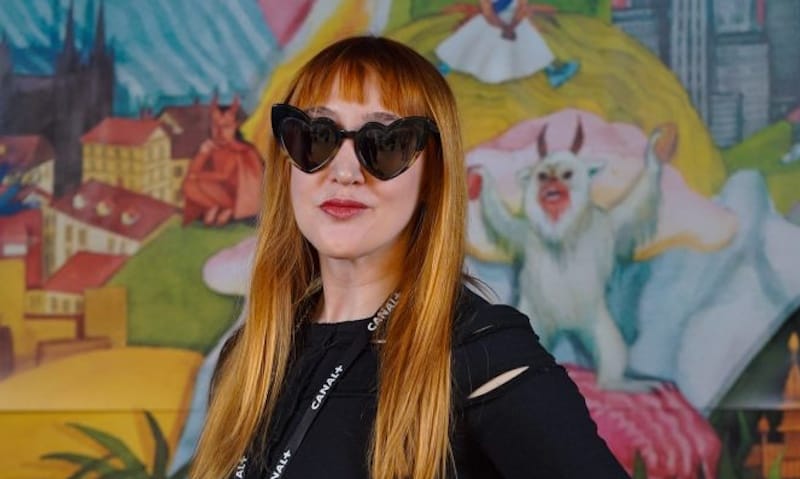
Ashley (L) and Maya (R).
Interview with Ashley George & Maya Korn
Woman in Revolt: I'd like to hear the story of how you came up with the idea for "Diabla." I'm curious about the progression from 'response to the US presidential election' to 'badass witch revenge film.'
Maya Korn: This film is my Columbia MFA producer's thesis. I was feeling really claustrophobic with Trump's comments and I make genre films generally, so I wanted to make a female revenge protest film. I've been interested in Mexico for a long time because of the culture's relationship between folklore and death. I've also had a lot of friends move to Mexico City, so I was like, there's something there ... I think I want to go visit. I pitched the idea at a women in film group and brought on Ashley.
When we were first in Mexico City, we went to a witch market to meet some brujas and were really inspired by that. We went back to our writer (Alonso Diaz-Rickards), who is from Mexico City originally, and gave him all this information, then he came up with our story. And actually, the witches in our story aren't strict brujas. We didn't want to appropriate Mexican witch culture, so we just made them supernatural local witch beings, not fully brujas.
Ashley George: Maya asked me last year to come to Mexico City and feel out the vibe to determine what kind of film I wanted to direct. I came here and was fascinated with the magical communities... bruja culture and indigenous magical beliefs post-Catholicism. Maya was super in sync about wanting to make a film that was loud and clear about fighting for something. Seven women die here every day due to femicide, which is a crazy statistic. I decided I wanted to make a film about a woman who is raped at a party and takes revenge on her attacker, who happens to be her cousin. When rapes happen, the perpetrator is often a family member or someone close to the victim.
So based on my time in Mexico City, I sort of came up with the concept of the story... and Maya contributed greatly to that. Then we brought on Alonso, a friend of Maya's, and he wrote the script. We went through about 6-7 iterations of the story in order to make it work. There were a lot of people who contributed to the process - mostly women. There were some guys involved, too, but we were really interested in the female experience. This is a film about what it's like to be a woman... the claustrophobia that comes with always being watched.
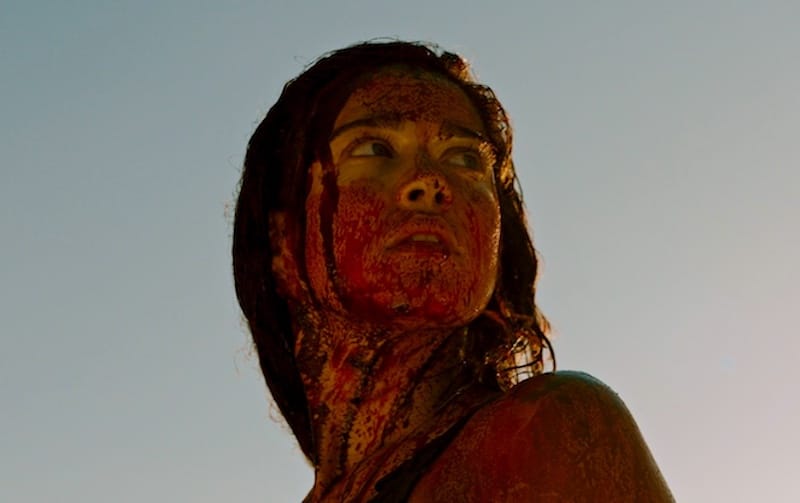
Did either of you see "Revenge"?
Ashley: Of course! I loved that film... loved that it was one of those daytime horrors. And the actress (Matilda Anna Ingrid Lutz) was amazing.
For me, it was the first rape/revenge in recent memory that did something different and treated genre with a unique, wholly feminine perspective. Have you seen any films that you feel have done that?
Ashley: "They Call Her One Eye" (Vibenius) is a favorite. It's from 1973, so it's very seventies stylistically. It's about a young girl who gets kidnapped, becomes a heroin addict, and is forced into prostitution, but eventually finds a way to get out. She's also a mute, which is an interesting part of the narrative. Her character inspired Quentin Tarantino's Elle Driver (Daryl Hannah).
"Ms. 45" (Ferrara, 1981) is a classic, too. And "Hard Candy" (Slade, 2006) with Elliot Paige. It's not really rape/revenge, but female revenge.
I'm always interested in, and sensitive about, how sexual assault is depicted on-screen. How does your film treat it?
Maya: You will know it's an assault but won't see any kind of graphic penetration or glamorization of the act. The scene will be shot from the female character's point of view. It will be clear what has happened, though.
It seems really stressful to shoot on location, in a place you're not super familiar with — to coordinate schedules and make sure you have the proper permits and everything. How are you handling that?
Maya: I'm really lucky to have an amazing Mexican female co-producer, Diana Mata. She fills out all of the forms and knows more about the process than me. It actually didn't end up being that expensive to obtain permits, I think because I'm a student.
Are there any particular works of art that inspired "Diabla"? How would you describe the film's aesthetic?
Maya: When I was researching the concept initially, I was really inspired by a film called "Miss Bala" (Hardwicke, 2019). It's about a beauty queen in Baja, California. She's a very passive lead character and gets completely drawn into the cartel world by being in the wrong place at the wrong time... It's a super common story. Watching that blew my mind and helped me understand what the treatment of women is like here.
We have a girl on our team, Silvana Lazaro, who helps us make the Spanish script's regional dialogue more accurate. Our writer grew up in Mexico and we had feedback that the dialect he wrote is more fancy Spanish. Obviously I can't tell it's posh Spanish but people suggested it was very far from [how they speak in] Iztapalapa. Silvana grew up in a neighborhood like Iztapalapa and was saying that one of the things we need to convey in the film is the feeling of danger that is always present... the feeling that anything could happen at any time. "Miss Bala" gave me this feeling and was a good reference point for us when working on "Diabla."
Ashley: I'm in love with the aesthetic of Mexico... visually and aurally. There's always a lot going on, it's high stimulus at all times. We're really taking advantage of a lot of exterior locations. There's definitely a magical quality to the place. Cinematography-wise, we're playing with the idea of claustrophobia. I want this to be an internal film, where the audience sees things through our protagonist's eyes. I want the spectator to feel like they're with her at all times.
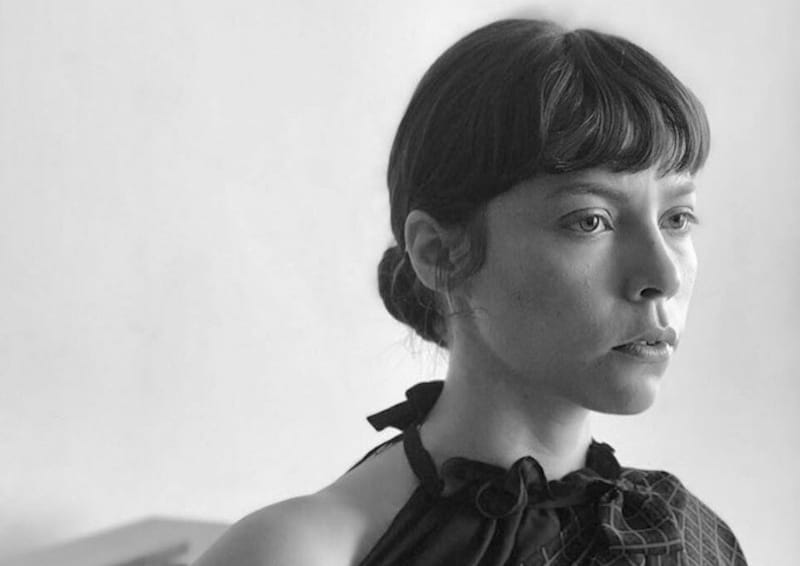
I was inspired by "The Chosen Ones" (2015) a film by David Pablos that was shot in Mexico. It has a very naturalistic aesthetic... almost like a documentary/realistic feel. Our film opens like that but changes when the protagonist gains her power. We'll explore more metaphorical visual elements when that happens.
My style as a director is a little bit like gritty cotton candy. Metaphorically speaking, it's like a wad of cotton candy that has been thrown into the dirt. I like to bring out the beauty in things, but also the darkness in the same frame. This is a dark film, but there are moments of lightness where the viewer is transported.
This question is not directly related to the film, but I'm curious... Did you feel like your master's programs were worth it?
Maya: I have been asking this question a lot lately! Before school, I was working in film marketing in quite junior roles. I felt really unsatisfied, like I couldn't progress, but I didn't know why. On the side, I started an immersive theater company in the UK and also did some events in New York before school took over my life. So I was producing, but it was theater. I think the skill is still pretty similar. So it was mainly this, along with unsatisfying junior marketing things during the day.
I graduate from school in February — it's my thesis year. The structure at Columbia is like... everyone does everything the first year: directing, producing, writing. And then the second year, everyone is separated into their specialty. Those two years have a really ridiculous schedule and so any social life you have outside of school is massively hampered. I felt like I was losing my other life, especially since I lived in New York for a few years before starting school. I felt a bit isolated and alone.
Looking back on it, one of the most valuable things I learned is how to organize a set. Film sets weren't as intuitive to me as immersive theater. And so now I know how to make sets. This is my biggest short to date, with the largest budget. My first one was $3,000 and the second one was $7,000... now this one is $25,000. I feel like I've really grown into the size and am ready to keep building up to making a feature. For me, it was really worth it, but the financial toll, stress, and depression are really hard and not to be underestimated.
Ashley: I got my master's at the New School.
Oh, cool. I also got my master's there. Did you have a good experience?
Ashley: It was great to have the network access but overall, I don't think it was worth $40,000.
I agree with you 100%.
Maya, you grew up in the UK, right? Do you think you'd want to move back there after school is over?
Maya: I did. I wanted to move back until Brexit happened. It's actually having a big effect on the film industry. A lot of funding isn't available anymore. My dream is to start a small production company and I don't know if that's possible with how the economy is right now. I'm going to wait it out and see what happens in five years with Brexit.
I became German about a year and a half ago. It's really cheap to live there and they have great film funding, so I'm considering Germany if I don't stay in the states.
Have you seen any films recently that you really liked?
Maya: I just saw "Hereditary" (Aster, 2018), but it's not a very good example because I didn't love it.
Ashley: I loved it! I thought it was incredible. The set design and acting, especially. What did you think about it?
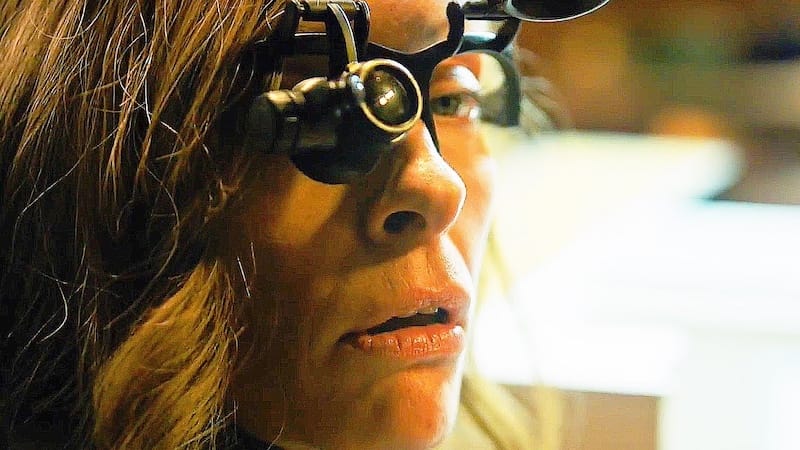
I didn't love it. I wanted to but... I just felt like the end was tacked on and sloppy.
Maya: I really liked how slow it was and how quiet some moments were. But I didn't really understand what was going on sometimes... The story didn't give me what I needed. The end could have been so interesting if it was set up a bit more. I've seen a lot of 70s films that have that kind of thing going on, but this one didn't make me excited or intrigued like those 70s films did.
Are there any other horror films that you love/recommend?
Ashley: I always come back to Dario Argento and Italian giallo films.
Are you excited about the new "Suspiria"?
Ashley: I don't really know yet. It's cool that Luca Guadagnino is directing it. I loved "Call Me By Your Name" (2017). The remake looks so different, though. We'll see. I also liked "The Witch" (Eggers, 2015). Any witchy films, really!
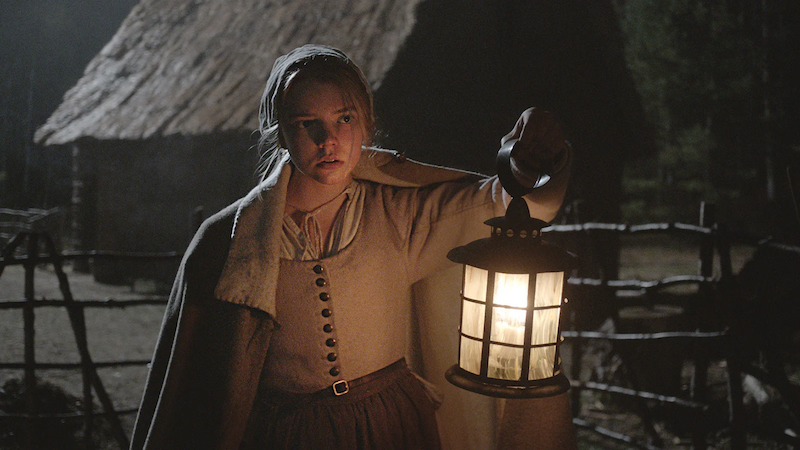
You can now watch "Diabla" in its entirety via Short of the Week.

